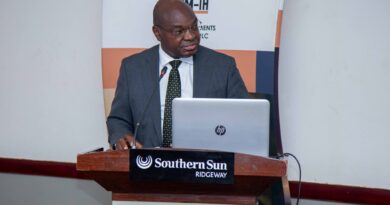Africa’s Renewable Energy Future: From Untapped Potential to Global Powerhouse
Africa stands on the brink of a clean energy revolution with the potential to transform its power landscape and drive the global shift toward renewables, provided the right investments and policies are implemented.
In a thought-provoking piece published by Africa Business, Izaak Coetzee, Head of Strategic Insights and Analytics at Absa Group, highlights the continent’s vast but underutilized renewable energy resources. Despite holding 60 percent of the world’s best solar potential, Africa contributes only one percent of installed solar capacity.
“From a resource standpoint, Africa should be powering its own future and contributing significantly to global clean energy targets,” Coetzee stated. “What’s missing is the translation of that potential into scalable, bankable energy systems.”
Africa’s renewable energy portfolio includes the capacity to generate 1.5 million terawatt-hours per year from solar photovoltaics, 980,000 TWh from wind, 350 GW in hydropower, and 15 GW in geothermal energy. However, the continent faces major challenges in infrastructure development, regulatory frameworks, and access to financing.
More than 500 million people in Africa still lack access to electricity, making energy poverty both a developmental challenge and a missed economic opportunity. Coetzee emphasized that Africa must implement strong regulatory frameworks to attract the estimated 20 billion US dollars in annual investment required to meet its energy and climate goals by 2030.
“Clean power must be made bankable,” he said. “This means transparent policies, legal safeguards, and ensuring that projects deliver sustainable returns.”
The article also stresses the importance of modernizing electricity grids. While power pools such as those in Southern and West Africa offer hope, inefficiencies and poor interconnectivity limit the reach of renewable energy projects. Grid losses in Africa average 15 percent, which significantly hinders the impact of clean energy investments.
Strategic infrastructure projects are needed to unlock energy corridors that link high-resource zones with areas of high demand. These must be paired with resilient planning and innovative financial instruments to reduce risk and attract long-term investment.
Absa Group is actively supporting this transition. In 2024, the bank facilitated over R49.2 billion in sustainable finance. It led efforts under South Africa’s Renewable Energy Independent Power Producer Procurement Programme and structured Tanzania’s first municipal green bond, which connected thousands of households to clean water.
Coetzee said these projects demonstrate how strong partnerships, local insight, and technical depth can turn ambition into progress.
As Africa prepares to host the G20 under South Africa’s presidency, there is a critical opportunity to position the continent as a leader in renewable energy deployment.
“With over a quarter of the global population expected to live in Africa by 2050, electrifying this growth is not just an African imperative but a global one,” Coetzee concluded.
The continent has the resources and growing investor interest. What remains is the collective political will to convert this potential into real, lasting power.



